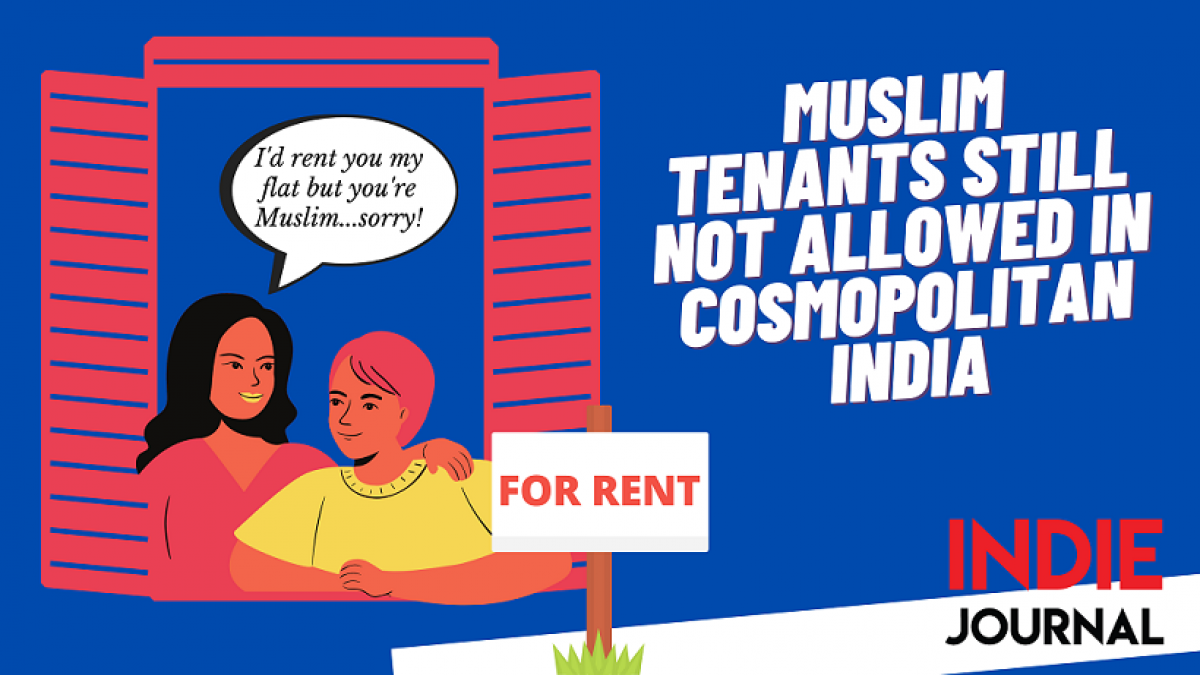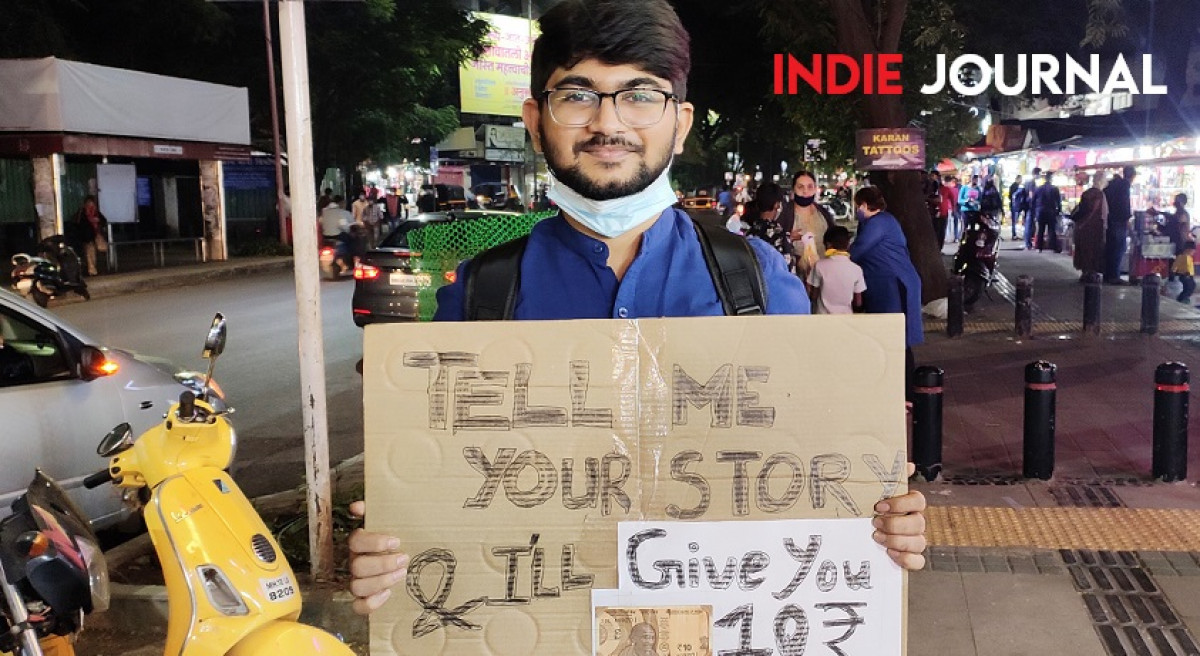India
Exclusive: This remote Maharashtra village celebrated its first Independence Day in 73 years!
Ghodankappi, is home to almost 25 Kolaam families.

Chandrapur: As India celebrated its 74th Independence Day this year, a remote village in Chandrapur district of Maharashtra organized its first Gram Sabha and celebrated Independence Day for the first time too. The village - Ghodankappi, is home to almost 25 Kolaam families who have been cut off from the rest of the world for all these years. The 95-100 villagers don’t have any roads, clean water facilities, or even network towers to ease communication. After living in a state of complete unawareness for years, the villagers have now found aide in few social workers who are helping the villagers to regain their status and accessibility.
Two months ago, former MLA Vamanrao Chatap was accompanied by Path Foundation’s Deepak Chatap, and Kolaam Vikas Foundation’s Vikas Kumbhare, to distribute ration and food packets among the Kolam community in Manikgadh Pahaad. This is when they came across the villagers of Ghodankappi. “To reach Ghodankappi, one has to cross a hill and follow a narrow trail of about 2 km. Since there are no transport routes available, the villagers rarely ever connect with the nearby villages. They don’t even have vehicles for the very same reason”, says Deepak Chatap. He further says that if a pregnant woman goes into labour, she is tied to an iron bed, which is then carried to the health care centre 15 km away.

Upon talking with the villagers, Chatap and his team learned more about their challenges and the legal knots that needed to be resolved to give these villagers a better quality of life. “Lack of clean water has forced the villagers to use sewage water for drinking, bathing, and other daily chores. Not a single house in the village has a gas connection. They live in mud houses and have no toilets”, Chatap states, as he briefly lists down the primary problems these villagers face. When the villagers were asked if they knew who should they approach to solve these problems, they responded with a no. They didn’t even know what a Gram Sabha was, who was their MLA or MP, or any other local representative.
Speaking about the location and history of the village, Chatap informed that the villagers currently reside at the foothills, but it isn’t their main village. “The main village is atop the hill. In 1992-93, the villagers had abandoned their homes after one of the houses caught on fire. They deemed it to be the wrath of their Goddess and thought it was unsafe to live there any longer”, Chatap informs. In 1995-96, Vamanrao Chatap, then the MLA of the area, ran a ‘Kolaam shodho’ campaign. Kolaam is the name of the tribe of Ghodankappi villagers. He then used state revenue to build houses for the villagers atop the hill and even installed a boring water line. However, failure of the boring line coerced the villagers to get water from the foothills, adding to their travail. Eventually - barring six families who still live in the government-built houses – all the villagers resettled at the foothill. They also sold the roofs, doors, and other building materials from the houses that the government had built for them.
Ghodankappi village comes under Bhari village’s Gram Panchayat, along with three other villages. But funds allocated for Ghodankappi have often been utilized for the other three villages as Ghodankappi is not easily accessible by roads. These villagers have been deprived of government schemes, resources, and provisions for a long time now – owing to the failure of proper implementation. They are unaware of most things as well – their local representatives to the current affairs. “The villagers don’t even know anything about the Coronavirus and its impact on the world. Lack of network restricts them from communicating with others. And with so many problems, they had no idea who should they escalate such issues to for a proper resolution”, informs Chatap.
Vikas Kumbhare and Chatap revisited the villagers a few weeks ago. They took it upon themselves to educate the villagers about primary civics and their rights, and also contacted concerned government authorities to get the wheel of resolutions rolling. “We first educated them about Gram Sabha and how every village needs one. Gram Sabha is a mandatory meeting held in villages, where problems of the villages are discussed and listed down. Signatures of all the villagers are taken and the drafts are forwarded to respective government authorities”, Chatap says. Planning to celebrate Independence Day for the first time was also being carried out. The sarpanch from Bhari was invited; villagers were practising their speeches and songs; but most importantly, a list of problems was being discussed to present in the Gram Sabha, which was to take place immediately after the Independence Day celebrations.

A letter was sent to the Zilla Parishad office ahead of the Independence Day celebrations to intimate them about the program. Soon after, a cement patch was constructed by district officials at the foothill, as a stage for the celebrations. Additionally, a 100-meter road was also built for the villagers to sit on during the festivities. As a part of the celebrations, village head Ramu Patil unfurled the National Flag, and thus the village witnessed its first-ever flag-hoisting ceremony. Following the celebrations, the first Gram Sabha of Ghodankappi was held where the problems were listed and their respective drafts were forwarded to concerned authorities.
“The first problem we listed was the lack of roads in the village, which makes facilities like Aanganwadi and medical centres inaccessible for the villagers. The Aanganwadi is 2 km away which includes crossing the hill. Moreover, there are not enough Aanganwadi helpers there either. The nearest medical centre is 15 km away, and though they provide mobile clinics/ambulances – none of them can reach us. So, we have also highlighted the need for a primary health care centre. We listed down the need for clean water.
Next, under the Pradhan Mantri Ujjwala Yojana, we have requested a gas connection for all these families who fall below the poverty line. They even have their BPL cards. Under Swacchha Bharat Mission, we have requested for toilets in the village”, Chatap states. He also states that a request has been made to build two bridges under the PWD, which will connect Ghodkappi to the neighbouring villages - on the other side of the hill. It will also connect all these villages to the taluka, making them more accessible. While the current generation of children is the first one to attend secondary school, facilities for a proper school will be requested once the primary and most basic needs are sorted out.
Commenting on the villagers’ efforts to solve their problems, Chatap says, “They have truly found independence this year through unity. They have come together, and are determined, to get solutions. Laxmibai, a villager talked about the villagers’ problems in her speech yesterday, while also realizing that they cannot overcome these problems, without raising their voices for what they rightfully deserve”.





